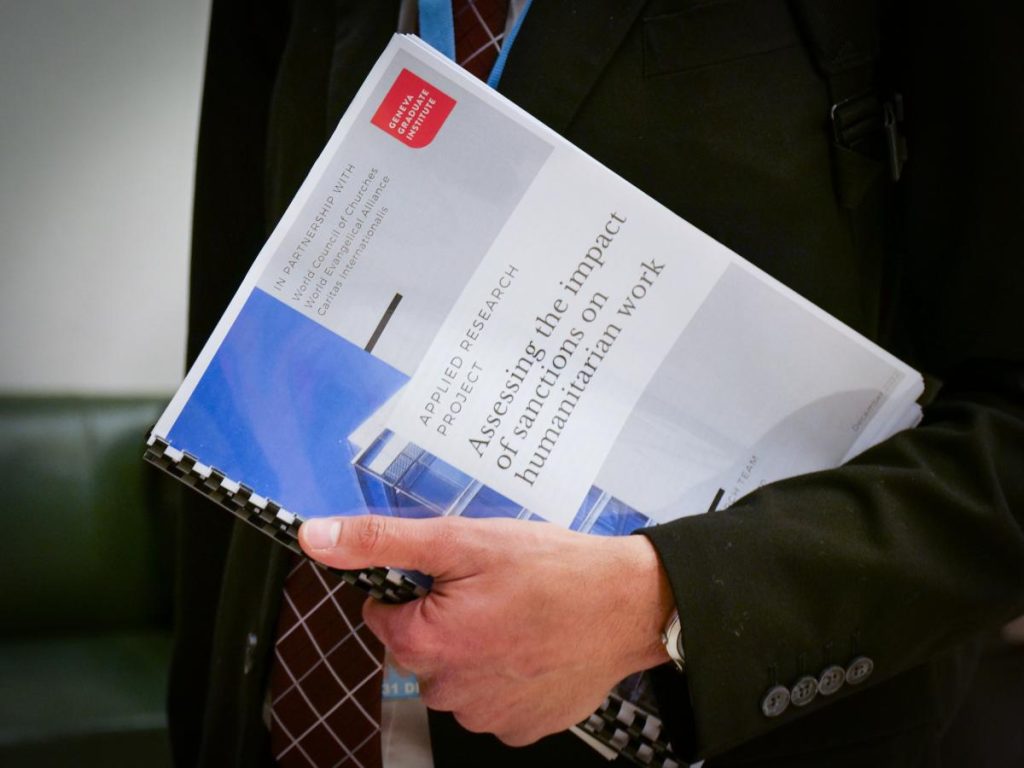
In the context of the 52nd Session of the United Nations Human Rights Council (27 February–4 April), Caritas Internationalis (CI) together with the World Evangelical Alliance (WEA), World Council of Churches (WCC) and ACT Alliance launched their joint report ‘Assessing the Impact of Sanctions on Humanitarian Work’ in partnership with the Geneva Graduate Institute.
The complexity of sanction regimes often causes uncertainty and additional burden on humanitarian organisations and has far-reaching consequences on populations in need of aid.
“When responding to emergencies, it is crucial to detect and address all possible obstacles undermining timely life-saving assistance,” said Floriana Polito, Caritas Internationalis Advocacy Officer for Human Rights and Humanitarian Policy.
“We are not against sanctions but for human rights and humanitarian law. And what our constituency has been telling us is that sanctions, and bank over-compliance with sanctions, in relation to Syria and the broader Middle East have led to bank transfers blocked and bank accounts unjustly frozen,” said Wissam al-Saliby, Director of World Evangelical Alliance (WEA) Office in Geneva.
The report documents the impact of sanctions on the work of churches that seek to provide humanitarian aid at grassroots, identifying two broad groups of challenges – administrative and operational – faced by CI, WEA, and WCC in providing humanitarian aid to affected populations in sanctioned countries. These include issues such as understanding sanction requirements, legal repercussions, applying for licenses, as well as operational obstacles, including challenges in transferring funds or goods and travel restrictions. The report then goes on to make recommendations on how to navigate some of those, such as the use of informal value transfer systems or bulk cash movements. As well as to maintain financial flexibility through the use of emergency funds and several banking channels in order to prevent time delays, increase UN contracts which are exempt from sanctions.
The full report can be downloaded here.